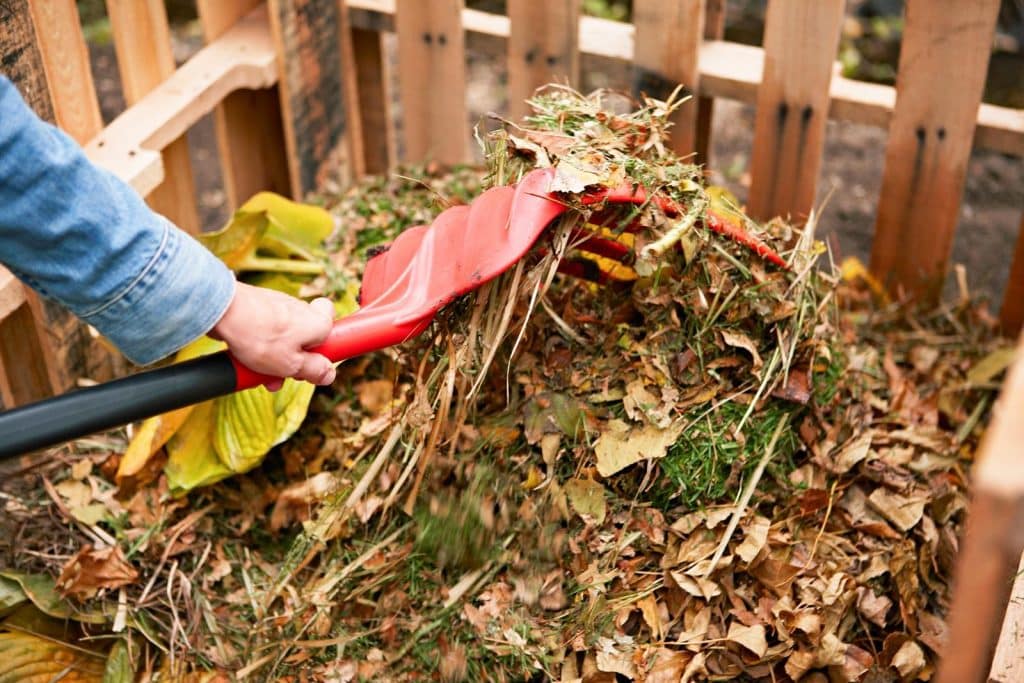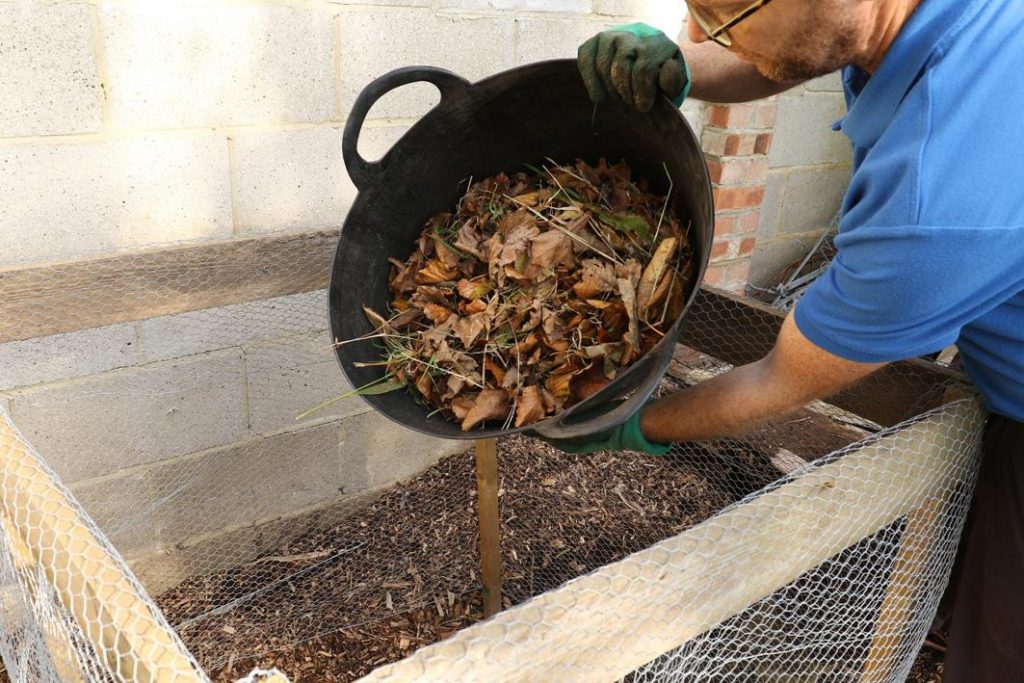Garden Composting
A GARDENERS CHEST OF TREASURE
How do we all feel about composting? Do we think smelly compost bins attracting vermin or do we think about the environment, recycling and goodness that we can put back in the earth to help our plants? Habits have changed and I do not think ‘Best Before’ dates have helped. When I was a child my parents did not need Best Before dates. They used their senses of touch, sight, smell, and taste to decide what food was fit for consumption. ‘Sell By’ and ‘Best Before’ dates have created mass confusion and contributed to the amount of food that is wasted. A third of world food is not eaten. Imagine if the land that is used for farming this third of wasted food was given back to reforestation, what impact would this have on climate change, ecosystems, and our wellbeing.

Credit: eBay
Where does it all start? It all starts in the kitchen. Keep a small compost bin in the kitchen to collect your food waste and add this into your garden compost heap. There are some very stylish compost caddies on the market so no matter what style of kitchen you have there will be one to match.

Credit: Better Homes and Gardens
Create a compost heap in your back garden. They can be constructed out of old pallets or buy one from the varied selection on the market. A brand called HOTBIN claims its product can turn waste material into compost with 30 – 90 days.
A study in February 2019 by Vouchercodes.co.uk, highlighted that the average UK household throws away £355.68 worth of food every year. According to the Waste and Resource Action Program, the UK wastes seven million tonnes of food every year of which 5 million is perfectly edible. Food waste has a huge impact on climate change. Eight percent of greenhouse gases worldwide are due to food waste. A large percentage of our wasted food goes into landfills creating methane gas. Methane is far more destructive than CO2 which means that it accelerates climate change. The government is making a concerted effort to introduce separate food waste collection for every household in England by 2023, to be able to effectively manage and compost food waste properly instead of putting it into landfill.
However, we can all do our bit to help. Many of us do care about our planet. One way we can help is by home composting. It is an environmentally friendly way of dealing with garden and kitchen waste. Do not put cooked food into your garden compost bin as this will attract vermin. Try and create a balance of carbon and nitrogen in your compost bin. Shredded paper, cardboard, woody pruning, and dried leaves will add carbon; grass clippings, kitchen vegetable waste, and manure will help add nitrogen to the compost.

Credit: RSPB
Create a leaf mould cage and fill it with your autumn leaf fall. The leaf mould you will get in approximately a year will provide you with a beautiful mulch that will feed your borders.
Composting is a biochemical process where naturally occurring micro-organisms help to break down organic matter, producing what we know as garden compost. Adding this to your garden soil will improve the texture and quality of your soil, increase fertility, help conserve moisture, and improve plant growth.
Local waste amenity centers sell a selection of composting bins. Using a compost bin for your waste organic matter will help to insulate the heap. The heat helps to accelerate the decomposition process. Your compost bin should be positioned on bare earth, allowing drainage and soil organism access to the organic matter. Make sure that the compost bin has a lid. It will help prevent the compost heap from drying out and maintains moisture within the compost heap.
Do not put diseased plants, perennial weeds, seed heads, cat & dog waste, plants recently treated with herbicides, meat, fish, and cooked food scraps into the composting bin.
For the composting process to work efficiently, it requires a balanced supply of water, oxygen, and a good mix of organic matter. Try and create a balance of carbon and nitrogen in your compost bin. Shredded paper, cardboard, woody pruning, and dried leaves will add carbon; grass clippings, kitchen vegetable waste, and manure will help add nitrogen to the compost. Woody pruning will decompose quicker if it has been shredded. Although it does not add any goodness to the compost, shredded paper will help absorb the decomposing smell and it is a good way of recycling waste paper. Leaves can be added to the compost heap too. Be aware that leaves take a longer time to break down. My advice is to give them a helping hand by running the lawnmower over the pile of autumn leaves and then empty these into the compost bin it will speed up their decomposition. Another way to recycle your autumn leaves is to put them into bin bags. Wet them and poke a few holes in the bin bags. Close the bag at the top and leave them in a hidden area of the garden. In a year you will have a lovely leaf mould to enrich your borders with.

Credit: QUBE Renewables
Councils bin 90% of food waste that could be recycled. Only 1.3 tonnes of food waste is processed in anaerobic digestion facilities to be turned into renewable energy. That equates to approximately 10% of the total.
Make sure the compost heap is turned periodically. This will prevent the heap from getting compacted and the oxygen levels dropping. It also helps to accelerate the decomposition process. In dry weather make sure the compost heap remains moist. Put in some earthworms into your compost bin as they will help break down and churn organic matter. However, if you do put in earthworms avoid putting in any citrus waste such as orange and lemon peel. If you see ants in your compost bin this could be a sign that you are not turning your compost pile frequently enough and it might be getting too dry. Active, hot compost bins are not a welcoming place for ants. Millipedes will help to break down organic matter and centipedes will eat up spiders and slugs.
There are accelerators on the market that can be added to your compost heap to further speed up the process of composting. As an alternative, a bucket of farmyard manure can be added to every 15cm layer of compost.
What you can add to your compost bin
Eggshells, nutshells, coffee grounds, tea bags (non-plastic), fruit and veg peel, kitchen scraps, stalks, cobs, toilet paper cores, sawdust, hay or straw, leaves, natural fibers like wool, hair, linen, cotton, hemp. Unbleached paper towels, grass clippings, plant matter, spent flowers, paper bags, cardboard, shredded paper, vacuum dust, lint, and egg cartons (cardboard).
What you should avoid adding to your compost bin
Bleached or laminated paper, materials sprayed with pesticides, logs, and large pieces of timber, coal, ash, compostable plastic, cat litter, meat, fish, bones, dairy, grease, oil, oranges, or lemons.
Start doing your bit for the planet today and get composting. You will be recycling, adding goodness into your garden soil and your plants will thank you for it.

Credit: The BoZone
If space allows then it is great to have two, three, or more compost heaps on the go so that you can turn and rotate the heaps. The aim to achieve what you can see in the box on the right. Happy Composting.




